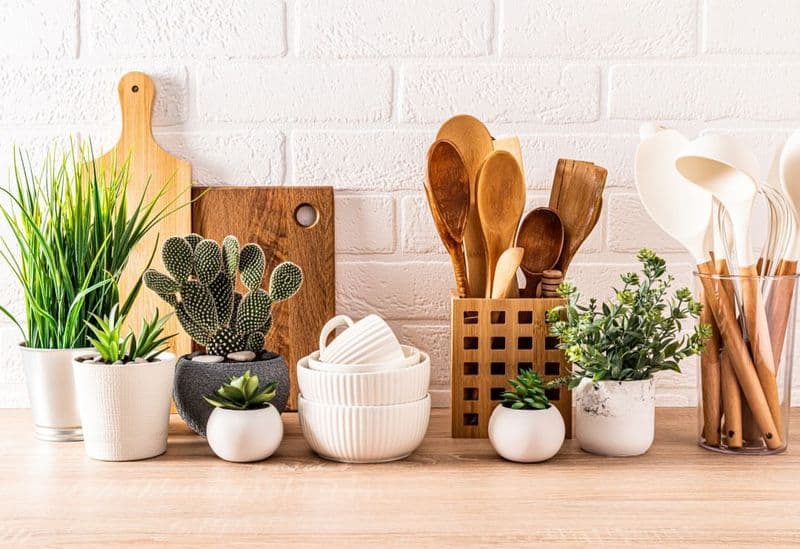In a world where consumerism often dictates our buying decisions, learning how to shop smart is crucial. By understanding how to avoid unnecessary household items, you can save money, reduce clutter, and contribute to a more sustainable lifestyle.
This guide offers insightful tips and creative strategies to enhance your shopping habits without sacrificing quality or satisfaction.
1. Embrace Quality Over Quantity

Investing in quality items might cost more upfront but saves money in the long run. High-quality products often have greater durability and functionality, reducing the need for frequent replacements.
When shopping, examine product reviews and materials to ensure lasting value. Prioritize items that enhance daily life and withstand wear. This thoughtful approach not only leads to financial savings but also fosters a less wasteful lifestyle. Quality over quantity creates a more satisfying shopping experience, emphasizing longevity and satisfaction over fleeting trends.
2. Make a List and Stick to It

Shopping without a plan can lead to impulse purchases. Begin by creating a detailed list of necessary items before heading to the store. Organize the list by categories such as groceries, cleaning supplies, and toiletries to streamline your shopping.
Once in the store, focus solely on purchasing items on your list. This approach minimizes distractions and helps resist the temptation of unnecessary buys. An organized list not only saves money but also reduces time spent wandering aisles. With discipline, you can enjoy a more efficient and budget-friendly shopping experience.
3. Set a Budget Before You Shop

Establishing a budget before shopping ensures you stay within your financial means. Calculate how much you can afford to spend and allocate funds to different categories. This proactive approach prevents overspending and encourages mindful purchasing.
Keep track of expenses as you shop, adjusting your budget if necessary. With clear financial boundaries, you can prioritize essential items. Budgeting not only safeguards your wallet but also fosters responsible consumption. As you practice this habit, you’ll develop a keen sense for distinguishing needs from wants.
4. Avoid Shopping When Hungry

Hunger can cloud judgment and lead to impulsive purchases, particularly of unhealthy snacks. To avoid this, eat a meal or snack before heading to the store. When full, you’re less likely to succumb to cravings or buy items that don’t align with your needs.
This simple strategy reduces impulse buys and supports healthier choices. By tuning into your body’s cues, you make more deliberate decisions. This approach fosters mindful consumption and helps you stay focused on essentials, keeping both your pantry and wallet in check.
5. Evaluate Real Needs Versus Wants

Distinguishing needs from wants is crucial for smart shopping. Before purchasing, ask yourself if the item serves a genuine purpose or if it’s driven by impulse. Consider the frequency of use and its necessity in daily life. This reflection can prevent unnecessary acquisitions.
Practicing discernment helps cultivate a minimalist approach, fostering a clutter-free living space. By focusing on true necessities, you can streamline your environment and simplify life. This mindful practice not only saves money but also enhances overall well-being.
6. Utilize Price Comparison Tools

Leveraging technology can lead to significant savings. Use price comparison tools and apps to find the best deals on desired items. These tools provide real-time information on prices across various retailers, allowing informed decisions.
By comparing prices, you can identify where the true value lies. This strategy empowers smart purchases and avoids overspending. With technology at your fingertips, you can shop efficiently and effectively, embracing a more savvy consumer mindset. Price comparisons ensure you get the best deal without unnecessary compromise.
7. Shop with Eco-Friendly Goals

Sustainable shopping benefits both the environment and your household. Opt for eco-friendly products that align with your values, supporting brands committed to sustainability. Look for items with minimal packaging or made from recycled materials.
Shopping with the planet in mind encourages mindful consumption and reduces waste. This practice not only promotes environmental stewardship but also leads to a healthier lifestyle. By choosing sustainable products, you contribute to a more sustainable future while fulfilling household needs responsibly.
8. Plan Your Shopping Trips

Planning shopping trips saves time and energy. Designate specific days for shopping to avoid unnecessary store visits. By consolidating errands, you minimize transportation costs and reduce impulsive buys.
Structure your shopping around store discounts or sales for added savings. This organized approach leads to more deliberate purchasing, aligning with your budget and needs. Planning ensures you’re in control, transforming a mundane chore into an efficient task. With preparation, shopping becomes purposeful and stress-free, maximizing both time and resources.
9. Take Advantage of Sales Wisely

Sales can be tempting, but discernment is key. Approach sales with a clear strategy, focusing on items you genuinely need or have planned to purchase. Avoid buying solely because of discounts; instead, verify the product’s value and necessity.
This measured approach prevents acquiring unnecessary items. Wise sale shopping requires patience and insight, transforming potential splurges into smart investments. By capitalizing on genuine deals, you enhance your shopping prowess without cluttering your home. Sales become opportunities for value, not pitfalls for excess.
10. Rethink Impulse Buys

Impulse purchases often lead to regret. To curb this, implement a “wait-and-see” approach. If an item catches your eye, give yourself time before buying. Consider its role in your life and whether it fills a genuine need.
This pause allows for reflection and wiser choices. By resisting immediate gratification, you foster mindful buying habits. This strategy not only saves money but also reduces clutter. Impulse control grows into a valuable skill, cultivating a more intentional and satisfying lifestyle.

